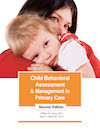Soothing, Not Scolding
When Benjamin and his mother came to see me together for the first time in my office I watched how they interacted. I now had information about Benjamin from his mother, from the school staff, from my observations and from seeing parent and child in my office. Because of my interest in the work of Stella Chess and Alexander Thomas on temperament and how different children interact with the world, I soon suspected that Benjamin was low-adapting. Children with this temperament characteristic have difficulty with new experiences or tasks and need a period to adjust to changes of activity or location. I also thought he was high in sensitivity, which means he could be easily overwhelmed by outside stimulation. I shared my assessment of Benjamin's temperament with the Head Start staff at the next meeting.
Because Benjamin was so bold and eagerly involved himself in everything, the staff had missed signs that he had a hard time adapting to transitions. Often his "aggression" was an energetic reaction to the stress he felt when obliged to make quick changes from one activity to another. While no one wanted Benjamin's behavior to continue unchecked, knowing this made the staff more sympathetic.
I suggested that when the staff noticed Benjamin was beginning to get upset, they observe his behavior out loud in a neutral tone. For instance, when another child accidentally bumped into Benjamin, it would trigger his high sensitivity and he would often lash out at the child verbally or physically. However, when a teacher saw that and commented to Benjamin, "Boy you are looking really mad! You almost got knocked over," it became an opportunity for Benjamin to slow down, become more aware of what he was feeling and make better choices himself about how to respond or to seek help. When he started to become agitated, I suggested they could also help him calm down by offering him a hug, or giving him some time to himself-to play with puzzles, for example, an activity he found soothing.
Once Benjamin got upset, he lost the ability to respond to staff and really blew up if they approached him. I suggested the staff keep his low adaptability in mind and minimize those situations by giving Benjamin warnings before changes and transitions in the schedule, reminding him that while he had a hard time with new things, it got easier for him after a while. "Remember when you had to sit at a different table at lunch yesterday and how unhappy you were at first? By the end of lunch I saw you laughing and laughing."
I also advised the staff to take advantage of Benjamin's sense of humor, engaging him playfully rather than sternly to minimize power struggles and defuse potential blow-ups. The staff should also be on the alert for times when Benjamin didn't blow up during stressful times and talk to him then about what "tricks" he had used to keep himself from exploding.












